Tech
OpenAI boss Sam Altman says Muslims in tech world fear retaliation in speaking up
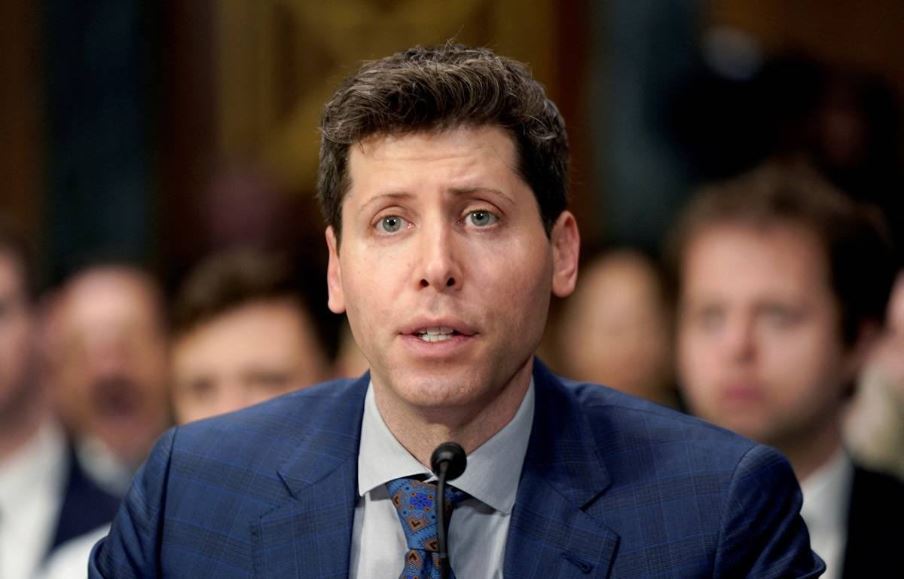
OpenAI CEO Sam Altman said on Thursday he felt members of the Muslim and Arab communities in the tech industry were uncomfortable speaking about their recent experiences, in an apparent reference to the impact of the ongoing war in Gaza.
“Muslim and arab (especially Palestinian) colleagues in the tech community I’ve spoken with feel uncomfortable speaking about their recent experiences, often out of fear of retaliation and damaged career prospects,” Altman wrote on social media network X, formerly known as Twitter.
The Microsoft-backed (MSFT.O) ChatGPT maker’s high-profile boss urged the tech industry to treat members of those communities with empathy.
A user on X asked Altman in a reply how he felt about the experiences of the Jewish community.
Altman responded: “I am Jewish. I believe that antisemitism is a significant and growing problem in the world, and I see a lot of people in our industry sticking up for me, which I deeply appreciate. I see much less of that for Muslims.”
Rights advocates note that antisemitism and Islamophobia have risen sharply in the U.S. and elsewhere since Oct. 7 when Palestinian Islamist group Hamas attacked Israel, killing 1,200 people, according to Israeli tallies.
Israel’s subsequent assault on Gaza has killed more than 22,000 Palestinians, almost 1% of its 2.3 million population, according to Gaza’s health ministry.
The Council on American-Islamic Relations said last month that in the two months after the war began, incidents motivated by Islamophobia and bias against Palestinians and Arabs rose by 172% in the United States compared to the same period last year.
The Anti-Defamation League said in December that between Oct. 7 and Dec. 7, U.S. antisemitic incidents rose by 337%.
© Reuters
Business
Boeing mulls shedding Airbus work in potential Spirit Aero deal
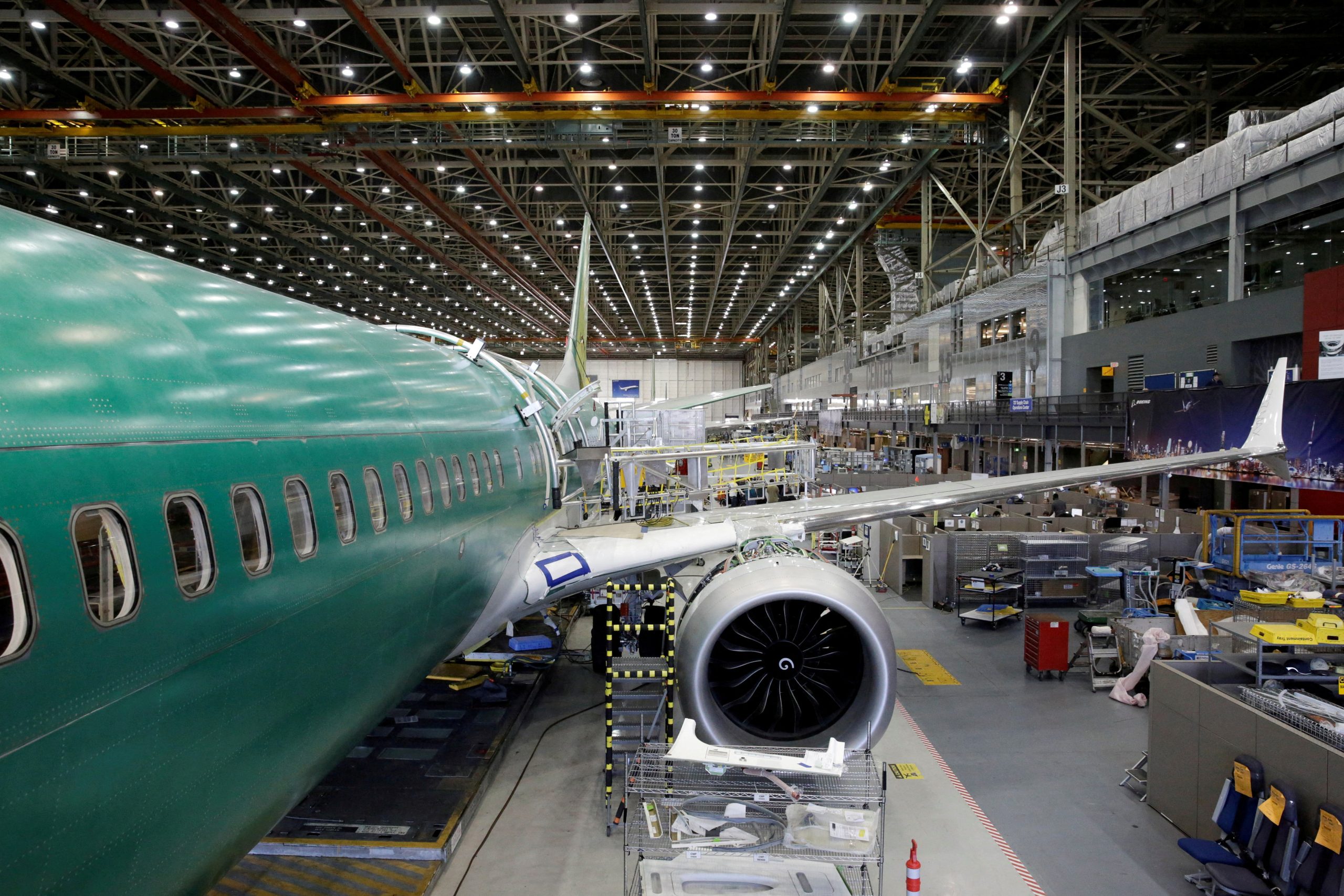
Boeing (BA.N)is looking at how Spirit AeroSystems (SPR.N) could shed or sharply reduce its ties to Airbus (AIR.PA), as the supply-chain giant’s work for the European planemaker poses complications in rival Boeing’s attempt to acquire its former subsidiary.
The U.S. planemaker is exploring offloading or redeploying specific Spirit businesses that supply key Airbus components if it reaches a deal, according to sources familiar with the matter.
Boeing (BA.N), is looking at how Spirit AeroSystems (SPR.N) could shed or sharply reduce its ties to Airbus (AIR.PA) as the supply-chain giant’s work for the European planemaker poses complications in rival Boeing’s attempt to acquire its former subsidiary.
The U.S. planemaker is exploring offloading or redeploying specific Spirit businesses that supply key Airbus components if it reaches a deal, according to sources familiar with the matter.
Boeing is also fine-tuning a defensive strategy in case European regulators take issue with Airbus relying on its main rival for key components in its supply chain, some of which are custom-made using proprietary design and technology.
The Airbus business generated a fifth of Spirit Aero’s revenue in 2023, making it sizeable enough to factor in to a potential deal, though Boeing could complete a Spirit purchase without a sale of those businesses.
However, Boeing does not want to own Spirit Aero’s Airbus business, which includes wing-making for the small A220 jet in Belfast, Northern Ireland that loses money, the sources said.
The four sources requested anonymity because the deliberations are confidential.
Spirit, which has a market value of close to $3.8 billion, has already held exploratory talks with Airbus about selling the plant, Reuters reported this month.
It is unclear how receptive Airbus might be to taking over Spirit operations. While its options to block a sale of Spirit to Boeing outright are limited, Airbus has significant lobbying power with European governments and could try to force Boeing to buy its way out of Spirit’s Airbus contracts, the sources said.
“There are very active conversations but no clear road map,” one of the sources said, adding that Airbus was studying all options.
Airbus and Boeing both declined comment.
Boeing has also been looking at whether other companies may be interested in Spirit’s Airbus business, the sources said. It was not immediately clear if any interested party has emerged.
Spirit Aero spokesman Joe Buccino said the company is committed to acting in the best interests of customers, employees and shareholders. “As commercial negotiations with Airbus continue, many options remain viable,” Buccino said, without elaborating.
PRODUCTION ISSUES
Boeing would gain more control of its production by buying back Spirit, but could have to pay large sums to buy its way out of contracts.
Spirit makes a key fuselage section and wing spars for the Airbus A350 wide-body jet at its Kinston plant in North Carolina, and wing parts for Airbus at Prestwick in Scotland.
“The Airbus A350 composite technology is sensitive because Airbus wouldn’t want a rival in charge of important pieces in their production,” aerospace analyst Richard Aboulafia said.
Spirit’s backlog at the end of the fourth quarter of 2023 was approximately $49 billion, which includes work packages on all commercial platforms in the Airbus and Boeing backlog.
According to its latest annual report, 19% of Spirit Aero’s revenue derives from Airbus projects, up from 10% in 2013.
Spirit also has been trying to secure better prices from Airbus, at a time when the European planemaker is looking for some supplier price cuts.
Without better prices, Spirit could lose more than $400 million annually while supplying Airbus with parts for its A220 and A350 aircraft in the coming years, TD Cowen analysts said.
“We don’t see a Boeing-Spirit deal until Spirit’s pricing issue on the A220 has been sorted out and there is clarity on what happens to the rest of the Airbus work,” they wrote earlier this month.
© Reuters
Business
Aston Martin delays first electric car as losses narrow
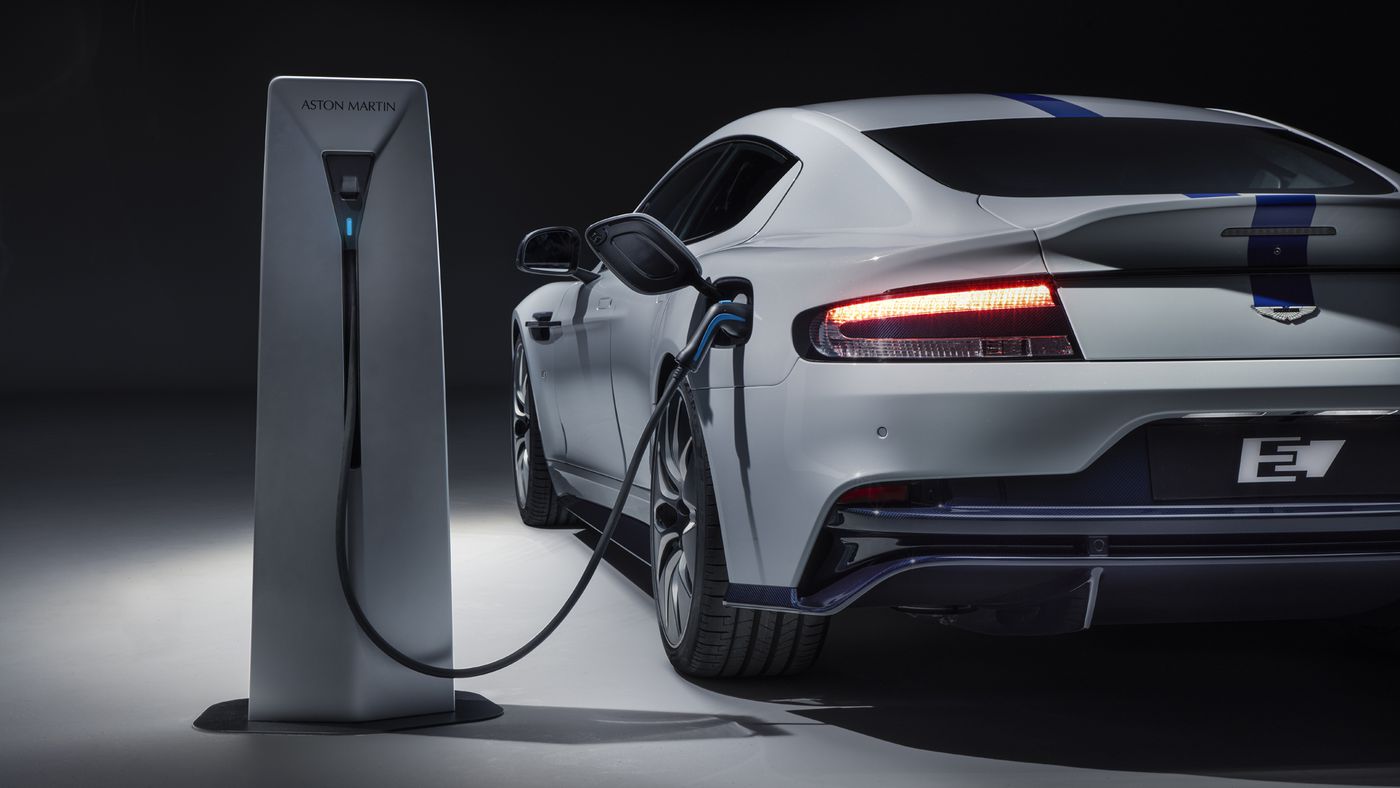
Aston Martin (AML.L) is delaying the launch of its first electric car because of a lack of consumer demand, it said on Wednesday, as record prices for its luxury and special edition models helped the British carmaker shrink annual losses.
Aston Martin is now targeting the launch of its battery electric vehicle (BEV) in 2026, a year later than planned – becoming the latest automaker to push back electrification goals as investment in capacity and technology has outpaced EV demand.
“The consumer demand (for BEVs), certainly at an Aston Martin price point, is not what we thought it was going to be two years ago,” Executive Chairman Lawrence Stroll told journalists.
Stroll said there was “much more driven demand” for plug-in hybrid vehicles, especially for a company like Aston Martin, as people “want some electrification … but (to) still have the sports car smell and feel and noise”.
Aston Martin’s first hybrid supercar, Valhalla, is on course to enter production this year.
The company’s annual pretax losses more than halved in 2023, coming in smaller than market expectations, after selling prices reached record levels as it delivered its Valkyrie models and other special edition cars.
Mercedes-Benz earlier this month delayed its electrification goal by five years and assured investors it would keep sprucing up its combustion engine models.
Last June, Aston Martin signed a supply agreement with Saudi Arabia-backed Lucid Group (LCID.O), to bolster its electrification strategy.
Stroll, who played down concerns about competition from Chinese EV maker BYD , added he was happy with the battery technology and platforms available to the company.
PIVOT
Fictional secret agent James Bond’s car brand of choice, Aston Martin has had a tough time since its market debut in 2018.
However, top shareholder Stroll has been trying to bolster its cash and margins by rolling out next-generation sports cars – the latest of which was the new Vantage sports model unveiled this month.
The carmaker’s shares were down 2% at 1047 GMT as investors fretted about its cash flow and volumes.
Aston Martin had hoped to turn free cash flow positive in the fourth quarter, but was hit by the timing of deliveries of its DB12 and Valour models.
It now expects positive cash generation in the second half of this year.
“Aston Martin is pumping reams of cash into marketing in a bid to help position itself at the ultra-luxury end of the spectrum. This pivot was never going to come cheap,” said Hargreaves analyst Sophie Lund-Yates.
Aston Martin reported an adjusted pretax loss of 171.8 million pounds ($217.4 million) for the year ended Dec. 31, compared with a 451 million pounds loss a year earlier.
Analysts, on average, expected a loss of 209 million pounds, according to a company-compiled consensus.
The company kept its near- and medium-term forecasts unchanged.
© Reuters
Business
Meta CEO Zuckerberg meets Japan PM Kishida in Tokyo to discuss AI
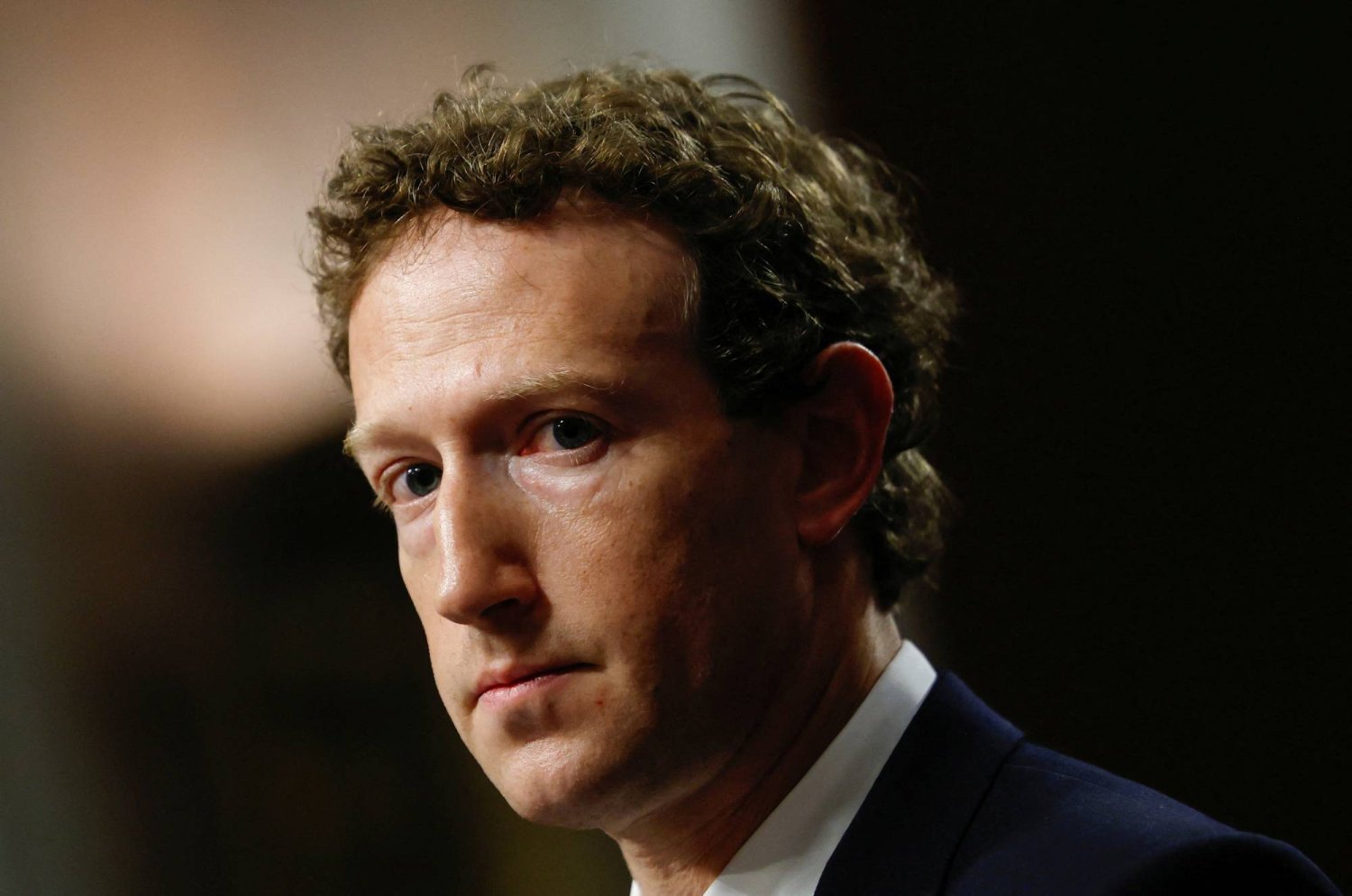
Meta Platforms (META.O) Chief Executive Mark Zuckerberg discussed artificial intelligence issues with Japanese Prime Minister Fumio Kishida on Tuesday during the Facebook founder’s trip through Asia.
“We had a good, productive conversation about AI and the future of technology,” Zuckerberg said in brief comments to reporters at the prime minister’s residence in Tokyo. He left without taking questions.
The meeting followed reports that Zuckerberg would visit South Korea at the end of this month to discuss AI with Samsung Electronics (005930.KS) chairman, Jay Y. Lee, and possibly meet South Korean President Yoon Suk Yeol.
Meta, the operator of Facebook, last week confirmed Zuckerberg was planning to visit South Korea.
Japan’s government and corporate sector are racing to catch up in AI development. In the past year, Kishida has met with OpenAI CEO Sam Altman and Nvidia (NVDA.O) CEO Jensen Huang to discuss AI regulation and infrastructure.
© Reuters
Business
Vodacom has been ordered to pay Please Call Me idea-man R29 billion — minimum
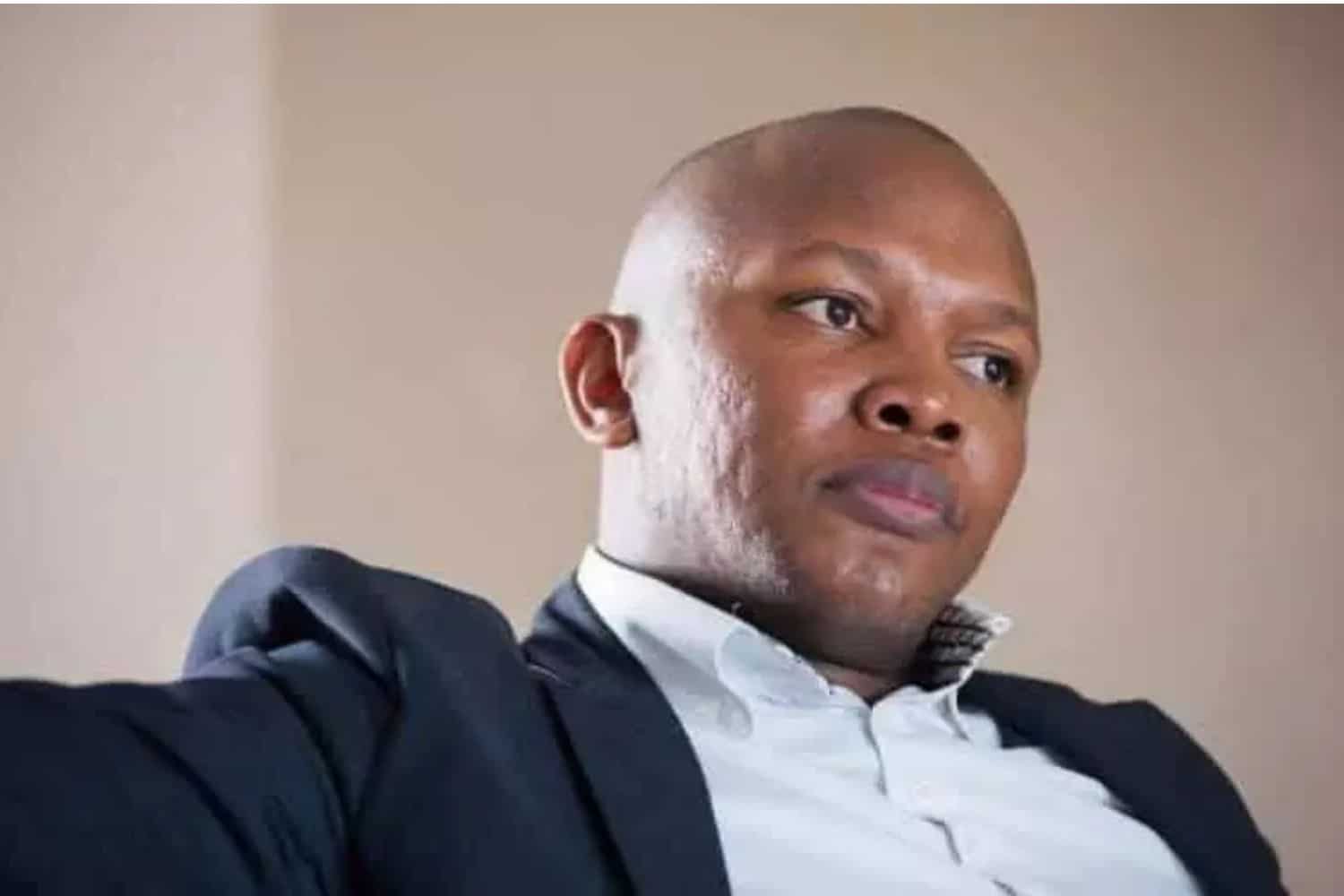
South Africa’s Supreme Court of Appeal has ordered Vodacom to pay Kenneth Nkosana Makate a minimum of R29 billion for his Please Call Me idea.
Court documents, which MyBroadband has seen, show that the Supreme Court has essentially ordered Vodacom to pay Makate between R28.99 billion and R55.37 billion.
This is much higher than previous assumptions that were based on Makate’s earlier statements and High Court filings.
The exact wording of the Supreme Court ruling was as follows:
“The applicant is entitled to be paid 5%–7.5% of the total revenue of the [Please Call Me] product from March 2001 to date of judgment by the Second Respondent, together with the Mora Interest thereon, alternatively interest in terms of Section 2A(5) of the Prescribed Rate of Interest Act,” the order stated.
It continued: “…the total revenue of the PCM product shall be that set out in Model 9A, 9B & 9BB submitted to the First Respondent by the Applicant (Annexure ‘NM30’–‘NM32’ to the Supplementary Founding Affidavit)”.
MyBroadband obtained these annexures and summarised the compensation Makate’s models arrived at.
Models 9B and 9BB were pretty straightforward as the final compensation based on 5%, 7.5%, and 15% revenue share were tabulated according to Mora Interest, compound interest, and Special Interest.
These models make certain assumptions about the number of Please Call Me messages sent over 18 years, their success rate, the average call duration, and the average call revenue.
The models then arrive at a total call revenue generated by Please Call Me of R194.8 billion over 18 years.
Model 9A was trickier to analyse as it assumed 15% revenue share and didn’t break down the final compensation by Mora Interest and Special Interest.
However, it provided a sub-total of estimated call revenue generated by Call Me messages that was close to Model 9B/9BB — R196.84 billion.
It then adds Please Call Me advertising revenue, “Recharge Me” revenue, and an additional estimate of how much it generated outside South Africa.
Under Model 9A, the total Please Call Me revenue comes to R273.39 billion. 5% of this came close to the 7.5% revenue share amounts in Model 9B/9BB, allowing us to expand our analysis using amounts already accepted by the Court.
The table below summarises how much the Supreme Court effectively ordered Vodacom to pay in its ruling handed down on 6 February 2024.
Vodacom has said it will challenge the Supreme Court’s ruling in the Constitutional Court.
Compensation / Revenue share Model 9A Model 9A
(call revenue only)Model 9B/9BB 5% revenue share with Mora Interest ~R43 billion ~R30 billion R28.99 billion 5% revenue share with Special Interest ~R55 billion ~R37 billion R36.91 billion 7.5% revenue share with Mora Interest N/A
(Over R55 billion)~R44 billion R43.48 billion 7.5% revenue share with Special Interest N/A
(Over R55 billion)R55+ billion R55.37 billion The amounts above are based on those provided by Makate’s legal team and accepted by the Supreme Court.
© My Broadband


















You must be logged in to post a comment Login